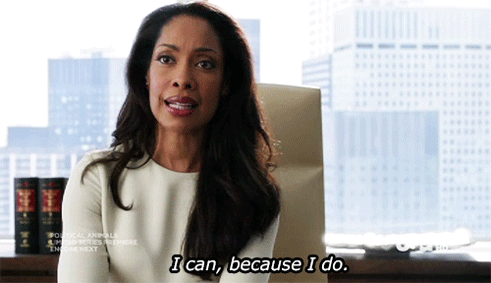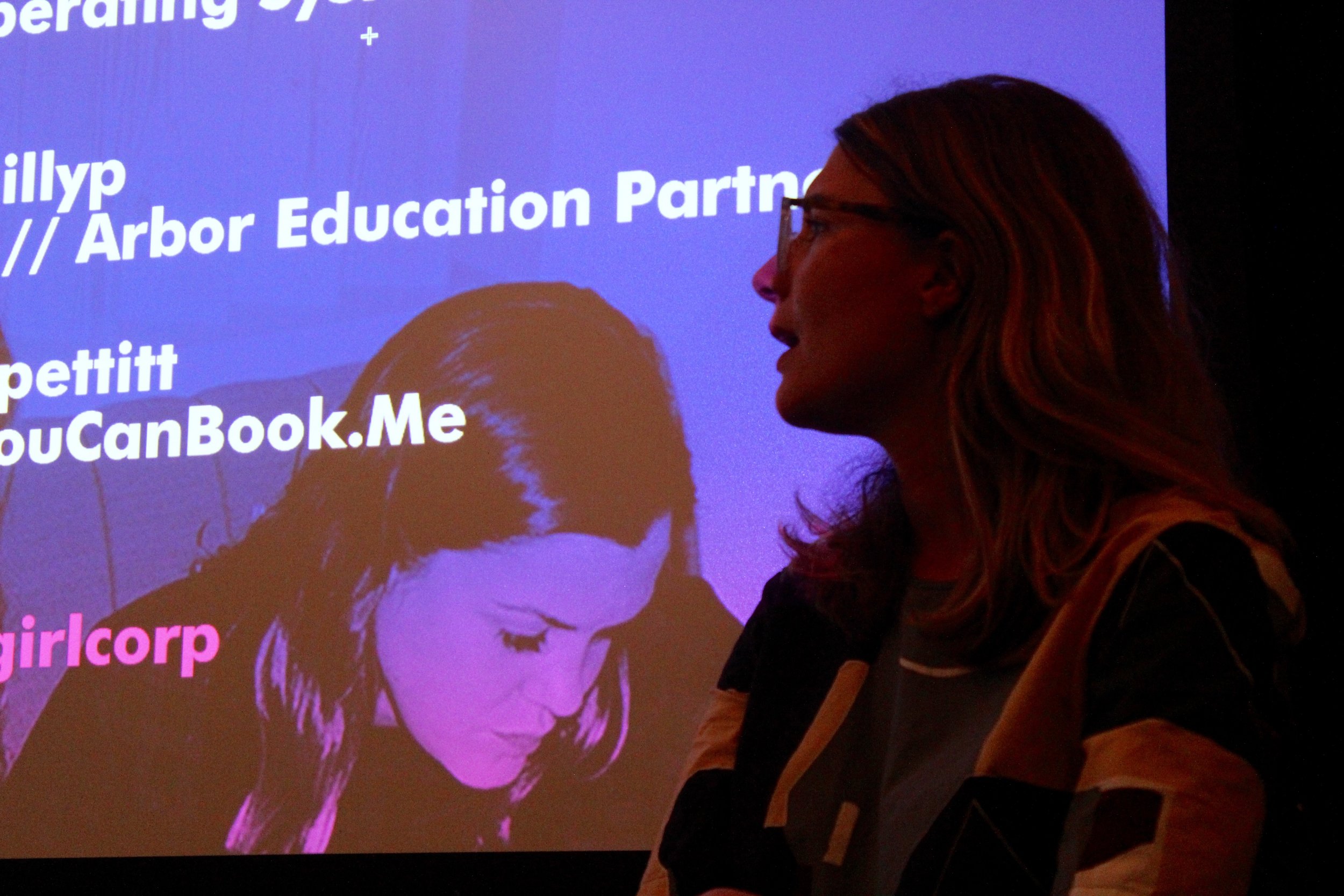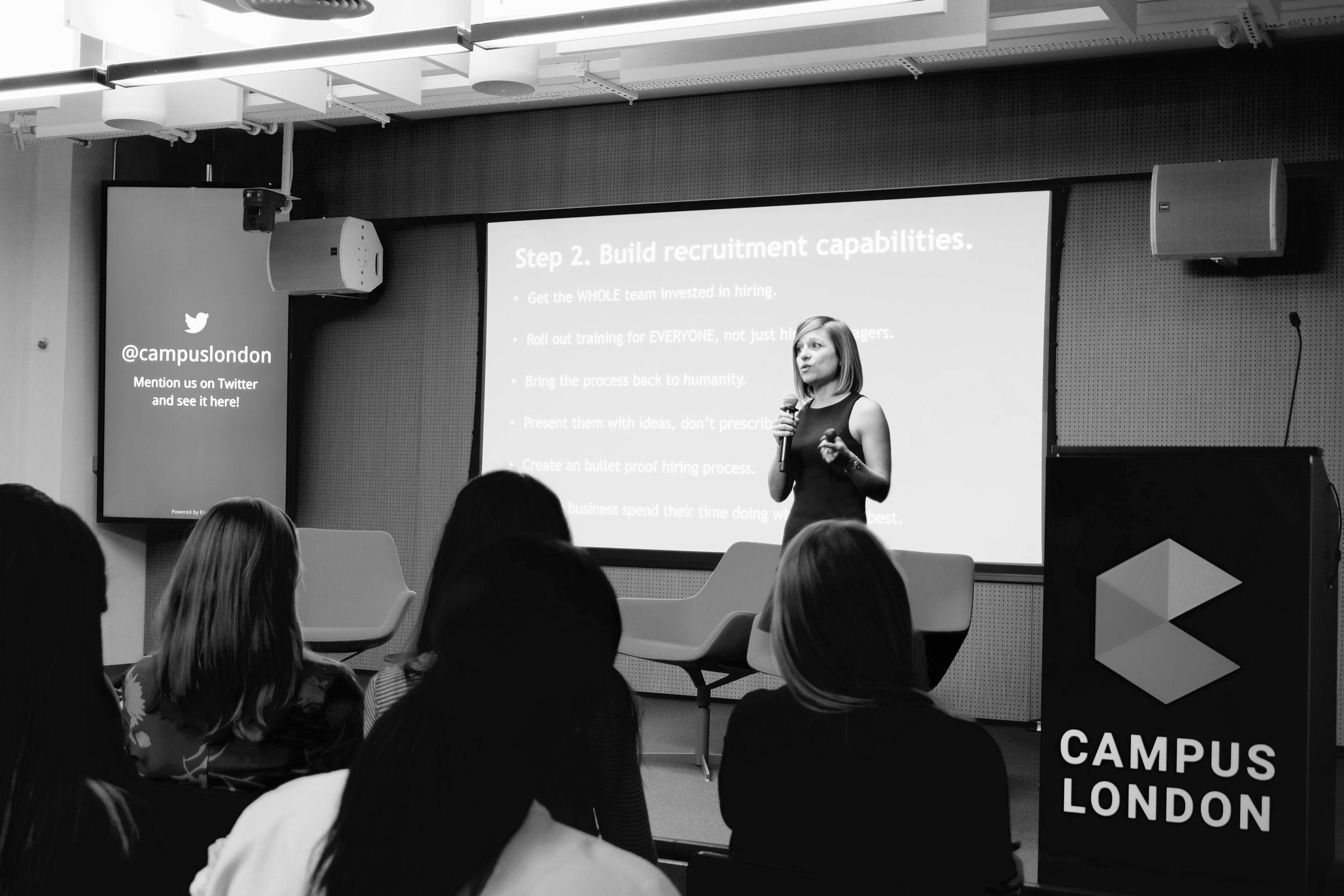Finding A Technical Cofounder

So you’ve got this incredible idea but not quite sure how to build it? Don’t you worry girl, we’ve got the scoop on everything technical, for those who aren't so technical. Our seventh panel of the year shared the good, the bad and the ugly of finding a tech partner for your startup, how to recruit the right talent and why you need to protect yourself. And with gender equality in tech being a hot topic right now, we even had some futureBOYS in the crowd!! OK class, time to pay attention because your lesson starts now!
The Panel
Emily Forbes, Founder of Seenit, a video collaboration tool that enables brands and companies to produce high impact video at scale, by engaging their audience around the world.
Aurélie de Sainte Preuve, Chief Product Officer at Seenit, ensuring the product vision and mission aligns with the company's global strategy and the tech teams are building the right features for the users.
Sharmadean Reid, Founder of WAH London and FutureGirlCorp, platforms that empower women through style (former) and business (latter).
The Big Question
...What is a technical cofounder, do I need one and where can I find one?!
WHAT? A chief technical officer (CTO) is a senior executive within a company whose focus is on managing the technological issues within the organisation. They are the face of your company's tech platform, taking lead with developers and user experiences.
WHO? Understanding the basic profile and personality of a good CTO is imperative to establishing effective work dynamics within your company. A good CTO should basically be you but the technical version, as well as:
- be passionate about your vision.
- have an understanding of the core things you need to build in order to grow quickly.
- have a plan on how to protect you from future problems e.g. having to rebuild later.
- have experience of day to day management of a team.
- showcase a good understanding of developers' mindsets.
- be interested in feedback and processes for managing feedback loops with developers.
- give examples of businesses they have already scaled.
- have experience working within a startup (this is a different ballgame than corporate, it’s high stress and high speed so hire a CTO that has can handle the startup lifestyle).
- be resilient and agile.
- be involved with the product throughout the whole journey, from building the idea to taking it to scale.
- have their own network and contacts to bring to your team e.g. developers, etc...
“A CTO is not someone sitting there coding your app...[he/she is] an architect to do with everything that is the technical building of your product.” - Sharmadean Reid, WAH London
WHY? ...do you need a CTO, when you could just hire a contractor instead? It's important to have someone there in the beginning with you to help with the tech side of your project. However, trying to find the right tech partner takes time, which you may not have if you need to get your product going asap. If so, hire a corporate contractor to do a specific job while you spend time recruiting a long-term partner with appropriate startup experience.
WHERE? You don't want to commit to anyone straight away so spend time researching a variety of places and platforms for your ideal CTO:
- Google it.
- Check on LinkedIn.
- Use a recruiter.
- Ask different people for advice - you might just find someone who wants to jump onboard and this gives you the time to vet them before saying yes!
- Sign up to Ada's list (a private and global list for women in tech).
“Just having someone there at the beginning was amazing.” - Emily Forbes, Seenit.
THE STUFF YOU NEED TO KNOW
...what you should be thinking about before approaching tech teams!
ALL ABOUT THE PRODUCT! You need to put enough emphasis and thought into the product before even approaching tech. Having an idea of the end goal isn’t enough to cut it and you’ll end up wasting time and money trying to backtrack. The first thing you need to do as a founder is to draw your app on paper and map out your user's experience. This will help you understand how much work and logic needs to be put into your product and force you to drill down to your minimum viable product (MVP). Ask someone you trust to help you narrow down the idea further, bridging the gap between expanding idea and guiding the engineering team who will develop it.
SHOW SOME LOVE! As a founder, the work doesn't stop when you hand over to the tech team. You should take an interest in the work your developers are doing. If you don't show that you care, why would they produce the best product for you? Get involved in the development process and show them that you're all part of one team.
“[People think] I need a developer who is going to be able to develop immediately for me, when actually so much thinking will save time upfront.” - Emily Forbes, Seenit.
THE LEGAL DEPT.
...make sure to you protect yourself and your team!
SUIT UP! Invest in a good lawyer! Get recommendations from people you respect and trust. Go out for a coffee with them and they’ll usually be happy to give you basic advice for free, as the are trying to woo you as a potential client.
CREATE A CONTRACT! You've got to protect yourself and those working for you so creating a good contract is important. Be early with presenting these contracts. Send rough terms via email and when everyone agrees your lawyer can draft up a development contract. Then get to work! A good contract should include:
- good leaver bad leaver provisions (if one of you leaves the company what happens?).
- vesting schedule (giving a certain amount of equity of your company but earned over time bit by bit - more information here).
- a features list.
- an end date (short-term contracts could be a useful option for trialling out the working relationship before deciding to fully commit).
“Get talking to a lawyer, it should be one of the first things you do. No matter how good a relationship you have with the new cofounder, lead, cofounding team, get a contract in place.” - Emily Forbes, Seenit.
THE EXTRA CURRICULAR CLUB
...want those extra credits, you gotta go that extra mile!
FEATURES LIST! So now your product is being made and you don't know what to do with yourself? Don't sit there twiddling your thumbs! Get out there, talk to potential users, ask them about their existing journeys, spy out what's not working and add it to your features list. When creating this list, make sure you not only explain what you each feature is but also why it's important. That way, the developers can understand what you're trying to achieve and why they are doing what they're doing.
FEEDBACK! To ensure the features within your product are innovative and meeting the needs of the users, you need feedback loops. These can go through your sales and account management teams, your CPO or CTO. You need to keep your clients feeling appreciated so they continue feeding back and then you can create monthly roadmaps based on this information. This of course will be passed on to your developers but give them the time to come to you with their own ideas and be innovative with your product.
FUNDRAISING! Need to fundraise? Well then you need someone on your team who understands tech otherwise investors won't be convinced. That doesn't necessarily have to be a CTO but you you do need someone on the journey with you who's going to help you manage and grow a tech team.
“Everytime we launch a feature the account management team send an email to our clients saying “we’re waiting for your feedback"." - Aurelie de Sainte Prevue, Seenit.
THE Q&AS
1: When you say Technical Cofounder, is that person really a cofounder?
“Don’t liberally give out c-suite titles straight away. Call people Lead of or Head of.” - Sharmadean Reid, WAH London
There's too much stress put upon a founder title. A cofounder is like a soulmate, so unless you both sat in a room together and have that eureka moment at the same time, you’re not cofounders. In the beginning titles aren't that important anyway, so don't go sprinkling it around like confetti because you can't take it back! Try calling your tech team a founding team instead, to avoid confusion.
2. How do you balance the pressure of getting your product out quickly but also finding a perfect CTO?
“I don’t think there’s the pressure to find a CTO straight off the back”. - Emily Forbes, Seenit.
Trying to find the perfect person for your business is hard and sometimes there will need to be a compromise. However, it's always better to spend time trying to find someone for the long-term. Hire a contractor in the beginning, to get you going while you continue to carry out the recruitment process.
3. How do you know if they are any good?
“For some roles there is a level of gut - you need to have a feeling.” - Aurélie de Sainte Prevue, Seenit.
Bring on advisors and get people to help with questions to ask during the interview. You could ask a friend with come along to your first meeting or suggest red flags that you should be aware of. Why not speak to other startup teams and ask if they wouldn’t mind if their CTO helps you on an interview - whether attending with you or just sending a list of questions? If you're not a technical person, it's definitely a good idea to have someone at the interview with you who can assess if the interviewees' answers match up to the correct processes. Don't forget, you have to hire someone who believes in your vision, so even if they don't have the full skill set at first, you can both grow together if you're end goal is the same.
4. How do you get them onboard?
“Your [pitch] deck is just as important for recruiting as it is for raising money.” - Sharmadean Reid, WAH London.
The best way to draw people into your company is by your vision statement. e.g. why you think your idea is going to work and why you're the right person to do it. Create a simple pitch deck, no more than 15 slides (google Sequoia deck fro example) and include questions as headers, simple answers, quotes from people in the industry to validate your idea, etc… Remember, the vision, the purpose, the market size and your execution method is what will grab people’s attention.
5. How do you protect your idea from someone who has more capabilities in implementing them and to what extent do you share your idea when talking to people?
“There’s competition left, right and centre... but you have to get out there and talk to people. There has to be an element of you believe you are the best person to execute this idea.” - Emily Forbes, Seenit.
An idea is an idea but execution is a different thing altogether. No can can run your business like you, so even if someone wants to steal your idea, your end vision will be different. It's a big market and there are no single winners, so remember that not talking to people will mean you won’t grow. Start to get to know the individuals before you give more information - spend time with them so you can gauge the situation properly. If you're really nervous and unsure about someone, your lawyer can draft a Non Disclosure Agreement (NDA) and you remove key USPs from the material you'll be sending out. There'll always be people with more money and resources than you, so just be mindful of what and how much you say.
6. Are freelancers necessary?
“Generally your biggest overhead is how much you pay people…you just have to know month by month what you’re spending.” - Sharmadean Reid, WAH London.
It can definitely be worth getting a freelancer in the beginning to kick start the work, while you’re recruiting for the right in-house person. But they can be expensive so hiring a freelancer should be about managing time more than anything. When thinking about that cofounder vs contractor debate, you should do your cash flow forecast for 12-18 months. For all of the people you need to pay, create a spreadsheet of salaries including when you need to pay them and how much. Do not deviate from that spreadsheet but keep a small contingency budget for contractors or freelancers because you might need someone to build something quickly. Beware that if you have too many freelancers, it can make it difficult to track what they are doing.
7. When looking for a CTO, should you compromise and pick someone who has all the skills but perhaps doesn’t get the vision or wait for someone who understands your idea fully?
“Someone not buying into the vision is going to damage you 100% in the long run - it’s just when it will happen.” - Emily Forbes, Seenit.
This is where the contractor or short term contract comes in handy! If it’s about the skill set, hire them as a contractor. If it’s about the vision, take longer looking for the right person to join your team. You can't teach your someone to love the vision. It’s either there from the beginning or it's not.
8. As a male founder, how do I work with a female cofounder?
Females generally want to work with someone who understand their experiences. Showing empathy to what it’s like to be a woman in the work place goes a long way. Build a company that’s going to be family and female friendly. Meeting someone and showing that you’re a decent human being, regardless of gender, is always good way to get started.
9. Do you need to have created a company culture to recruit the right people?
“Culture is always evolving.” - Emily Forbes, Seenit.
You can definitely start the company up with a culture. However, as a single founder you alone are the culture! At the beginning, it tends to happen organically as you vibe with the right people. You can ask certain questions that will help you understand how they like working, how they respond under pressure, etc.. These are the kind of things that will help you work out if you’re going to be able to align. As your team grows, the company values will develop from everyone’s input collectively rather than just relying on one person to set it. You should reevaluate every 6 months to make sure the culture truly reflects your team.
“Most of the people joining a company join it for the idea but also for the founder.” - Aurelie de Sainte Prevue, Seenit.
Showing how much you believe in your product, as a founder, will attract people to buy into your company as well. At the beginning, just create a vision, mission and culture document - reflecting the feeling of the type of company you would like to build. Then you can turn it into a deck when you have a number of employees that need to be trained in it.
10. Does using an Accelerator Programme help in building a team and how do you chose the right one for you?
It's more about coaching you to get the right kind of feedback from clients and giving confidence to ask more questions. Do your research! Get references from other companies that have joined such programmes.
THE HOMEWORK















